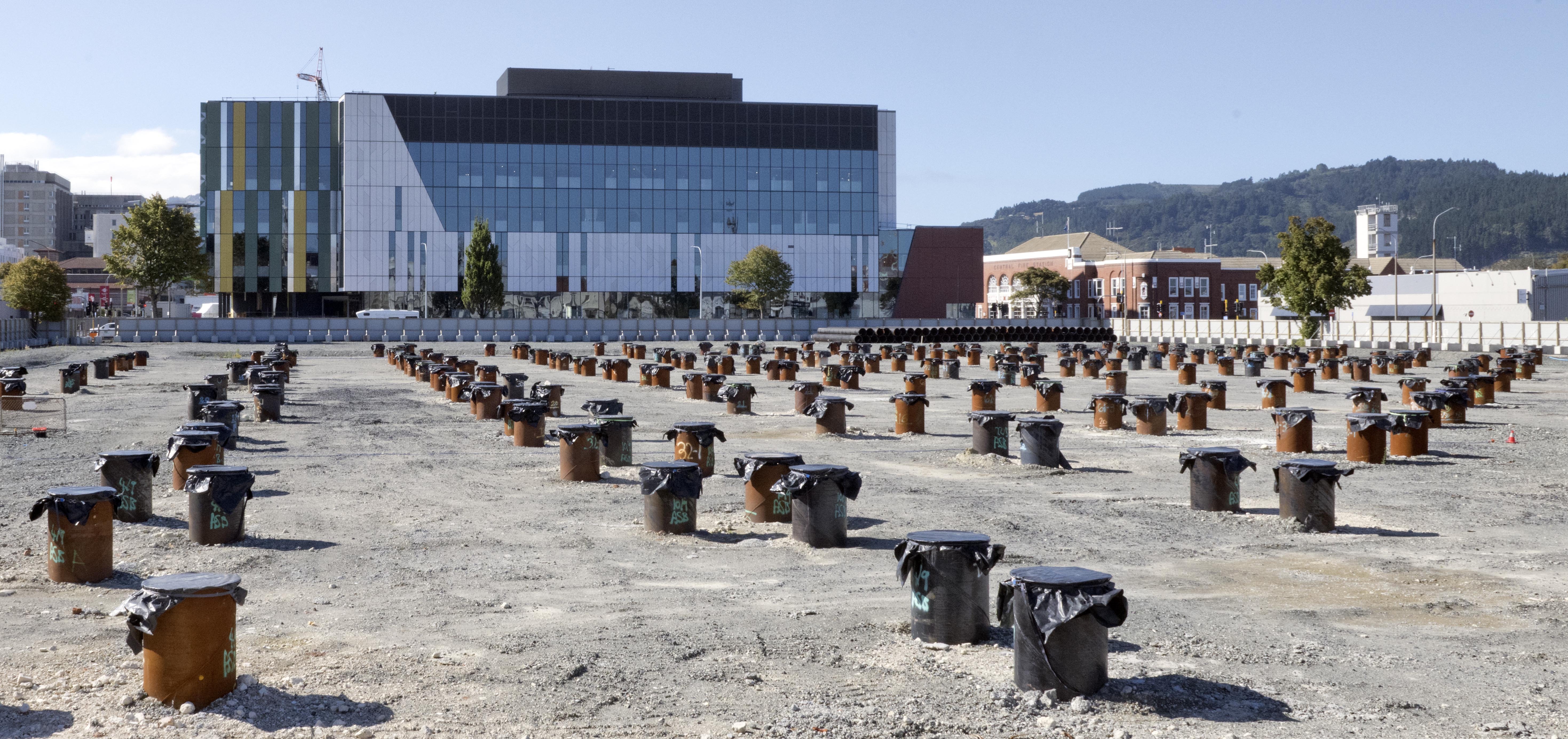
We have been let down by both the major political parties.
Labour set the hospital project going in 2017 (OK, kudos at least for that); but after their six years in power, all we had on the main site was a set of piles, poking their heads up above the ground.
Six years! Of course, if they had got their act together, the main building would, by now, be part-way to completion, and the original plan would have become embedded.
In an excoriating piece by Mary Williams (ODT 12.10.24), she documents the chopping and changing and bureaucratic bungling and faffing around that stymied the project, all under Labour’s watch (or non-watch).
Then in 2023 National came into power, with a hiss and a roar, making these wonderful promises, here listed as direct quotes from their electioneering pamphlet:
— A National-led government will ensure the hospital will open with all the beds, operating theatres and radiology services that Labour took away.
— When the hospital opens, the [originally promised] 421 beds will be ready to go.
— There will be 13 functional main operating theatres.
— The vital PET scanner will be installed and operational from day one.
— National knows how to get things done, and we will accelerate progress on this painfully slow-moving project.
And to emphasise the point, in larger font: "The new Dunedin Hospital will be built better and sooner under National".
Cue a Yeah Right billboard. The Cadbury site is still only a field of piles, and National has been in power, now, for a year and a-half.
The current, pared-back plan is for a 2031 opening, making it a 14-year exercise.
I contrast that with the Royal Children’s Hospital in Melbourne, where I used to work, and their new 340-bed building was planned from 2004, started in 2007, and completed in 2011.
National’s excuse: costs had ballooned, and $3 billion was too much. Hmmm. At the same time, they found tax relief for landlords, since costed at $2.9b. In other words, if they really wanted to find the money, they could.
It’s not as though an increase in costs was unanticipated, at least to anyone with their ear to the ground. National feigned surprise: but they are the party of business, for whom surely "due diligence" must be a standard mantra.
And do they not understand that every delay, every change to the plan, brings in yet more costs? What were they thinking? Or not thinking?
More non-thinking on their part: raising the canard that they might rejig the current hospital.
Fortunately, the good people of the South, some 35,000 of them, gave the lie to this nonsense, and the new minister shamefacedly came back with a scaled-back version of the original plan.
The PM is saying the new hospital will be "kick-arse" (I gather this expression means extremely excellent).
OK, if we take that at face value, that means an in-house PET scanner, and as indeed (see above) National had promised. PET scanners are standard equipment around the world, and so a hospital without one could certainly not claim to be kick-arse (some readers may recall a piece I wrote about medical imaging in these columns, 19.7.23).
A cynic might say that a PET scanner in the new facility being built on Great King St would be enough for the South; wouldn’t two scanners, within half a km of each other, be over-generous? Leave it all to the private sector?
I argue not. Apart from the fact that I retain an old-fashioned view that a promise is a promise, I have a desideratum: I would like to see a new department established within the hospital, under the aegis of the university.
A department of clinical molecular oncology, headed by a full professor, well-staffed, with an attached registrar training programme, and "kick-arse" research laboratory facilities.
Such a department could serve as a national referral centre, in the management of certain types of cancer. A PET scanner would be an integral tool in such a facility.
A word about "molecular oncology". A cancer represents a collection of cells that have undergone a genetic change.
Every cancer can have its own pattern of genetic change: and the study of these changes is molecular oncology.
The hope behind this study is that personalised treatments can be offered, targeting the genetic change that may be unique to the person’s cancer. This would be the research brief of the new professor.
We have form here. Prof Tony Reeve set up the Cancer Genetics Laboratory in the university back in the 1980s, and Prof Parry Guilford of that unit has developed, among other discoveries, a test that looks at DNA circulating in the bloodstream and using that DNA to detect and diagnose a cancer.
Molecular oncology research is already well-embedded in Dunedin’s academic DNA.
In the meantime, let’s get on with building the hospital as originally promised, and ASAP. Those piles have been out in the open far too long.
There’s been far too much faffing around already. Pull finger.
— Dr Mac Gardner is a retired medical geneticist.










